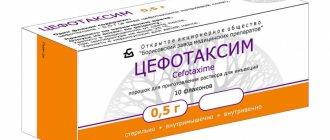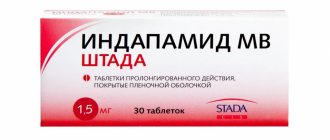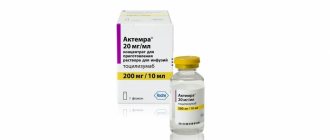Pharmacology
Tablets are a medicinal product with a sedative and antispasmodic effect. Melissa, valearian and mint extract provides a calming and antispasmodic effect.
In general, after taking the drug there is a decrease in feelings of anxiety and nervousness. There is a noticeable improvement in the condition of people in an excited and emotional state. With insomnia, the patient falls asleep much easier and faster, sleeps more soundly, and does not feel drowsy throughout the day.
Persen has a general effect on the human body due to its constituent components. Therefore, no clinical studies have been conducted. It is not possible to determine the metabolites of the drug.
Persen
Persen from the Slovenian pharmaceutical is a patented combined herbal remedy that has a sedative effect. Natural sedatives are one of the main attributes of the recently popular trend towards naturalization of the healing process. According to a WHO survey, about 80% of the world’s population prefer “natural products” to medicines. And the patient’s high trust in the treatment method used can significantly increase the effectiveness of the latter. Persen contains three plant extracts: valerian, lemon balm and peppermint. Valerian extract has long gained fame as a sedative. The conducted studies indicate that the action of valerian is aimed at stimulating GABAergic mediation. This is due to a decrease in the reflex reactivity of the central nervous system with a simultaneous increase in the processes of neuronal inhibition. Such qualities of valerian make it possible to use it as a sedative for excessive nervous excitement. Valerian has a positive effect on sleep, increasing its quality. Moreover, it is absolutely non-toxic and even in high doses does not cause surges in blood pressure. The list of adverse events that can be observed when taking valerian is limited to allergic reactions. The second “whale” on which the sedative effect of persen is based is lemon balm. Which, in itself having a sedative effect, potentiates that of valerian, which makes these two plants a truly “shock” combination used in many sedative herbal preparations.
Scientists suggest that the effect of lemon balm on the central nervous system is mediated by its interaction with acetylcholinesterase in the brain and suppression of the activity of muscarinic and nicotinic receptors in the cerebral cortex. The last member of this natural sedative triumvirate is peppermint, which has a wide range of uses: this plant object is used as an antispasmodic, sedative, vasodilator and analgesic. There is information that peppermint in the form of essential oil eliminates nervous tension, increases vitality, and relieves stress. Persen is widely used in pediatric practice because dThis drug is considered “pure”, not containing synthetic products and ethyl alcohol. Its use can be successfully combined with almost any psychotropic drug. The undeniable advantage of Persen is its good tolerability, which sets it apart from other drugs used to correct sleep disorders and anxiety conditions.
Persen is available in tablets and capsules (in the latter case, the drug contains a larger amount of valerian and “forte” is added to its name). It is recommended to take this medication 2-3 tablets 2-3 times a day (for increased excitability) and 2-3 tablets 1 hour before going to bed for insomnia. For children, the optimal dose is selected by the doctor. Capsules are taken in slightly smaller quantities: 1-2 at a time.
Instructions for use
The tablets are intended for internal use. Can be taken at any time, regardless of meals. You need to drink enough water.
From 12 years old you can take 2 tablets 2 times a day. The attending physician will be able to prescribe the correct course of treatment.
If a person has insomnia, then you need to take 2 tablets in the evening an hour before bedtime. The maximum permissible dosage is 12 tablets per day.
The duration of continuous treatment should not exceed more than 45 days. After finishing taking the pills, withdrawal symptoms do not appear.
Adverse reactions and overdose
When taking pills, negative reactions may occur in the form of:
- allergies, manifested by hyperemia, bronchospasms and skin rash;
- Long-term use may cause constipation.
Cases of overdose are possible. Usually happens if more than 60 tablets have been taken. Nausea, vomiting, lethargy, pain inside the body, and dizziness may occur. 24 hours after taking the drug in large quantities, the signs of overdose disappear. No toxic effects are observed. If necessary, you can do symptomatic treatment.
Other information
The drug should be stored at room temperature. Shelf life – 36 months from the date of release. Sold in pharmacies without a doctor's prescription.
Before taking Persen, you need to familiarize yourself with the features of its action and in what cases the tablets will be effective. If during therapy the symptoms do not disappear or the condition becomes even more severe, then you need to seek help from a specialist.
In patients with gastroesophageal reflux disease, the condition may only worsen during treatment.
After taking the pills, it is better to stop driving a vehicle and other dangerous mechanisms.
The duration of the treatment course should not exceed 60 days. If negative reactions occur, you should immediately inform a specialist.
Psychotropic drugs and treatment of covid
How to treat COVID-19?
When we cannot understand how to save ourselves from an unknown disease, we begin to try everything, sometimes we feel the benefit from it, but more often we feel nothing, unless, of course, we are talking about self-hypnosis, but it is known that the latter can create miracles. Representatives of the authorities and the Ministry of Health always answer that they treat Covid based on protocols and standards (where would we be without them here), that their recommendations are guided by the best practices of China, the USA, Europe and other countries and you can’t argue with that. True, officials in each country claim that their vaccine or antiviral drug is better than in other countries (there is probably not only politics here, but also economics). We now still have little time to try this or that vaccine or this or that method of treating Covid, and the first thing we can do is look at how different drugs, not only new ones, but also old ones, affect the diagnosis and treatment of Covid . Sinner himself, having discovered some analogy between the characteristics of the blood of patients with Mediterranean fever and COVID-19, wrote a letter to the Ministry of Health in April that it would not be bad to try to treat Covid with colchicine. I received a formal answer, “we are treating according to approved protocols” (I recently read that in September in Canada, 6,000 patients were quite successfully treated with colchicine), but this is a familiar story, and nothing can be done about it.
Mental disorders during Covid
Patients with COVID-19 may develop a mental disorder or experience an exacerbation of an existing mental illness (the second is observed, apparently, more often than the first) in response to the message of the diagnosis, the need for forced self-isolation, the presence of dangerous and therefore alarming symptoms and the possible risk of death. All this contributes to the emergence of anxiety and depressive spectrum disorders. In addition, intensive care and experimental treatments with psychiatric side effects (such as antimalarial drugs or hormones) are an additional risk factor for the emergence of mental disorders, particularly psychosis or states of altered consciousness, including delirium. Epidemiological data, although preliminary, has shown that one in four patients with Covid develop symptoms of anxiety or depression, and around 15% may develop a state of impaired consciousness, which is likely associated with a significantly increased risk of death.
Antidepressants in the treatment of COVID-19
Since I am still a neuropsychiatrist, that is, a doctor who knows neurology and psychiatry more and better, more thoughts about Covid and its consequences, naturally in my Blog, concern neurological and mental disorders. Still, there is another topic that is quite interesting to me, how psychotropic drugs affect the incidence of covid, its clinical picture, features of the course and consequences. What do we know from general pathology and psychoneurology? On the one hand, antipsychotics and antidepressants have an anti-inflammatory effect, but on the other hand, they reduce the number of neutrophils, lymphocytes and platelets, which are already in short supply during Covid, and therefore weaken the body’s defenses against bacteria and viruses. True, to combat hypercoagulation, which also occurs with a reduced platelet count, we are advised, and, in my opinion, of course correct, to take apixaban (Eliquis), an anticoagulant that is a direct inhibitor of factor Xa. However, it is worth reminding the reader of my Blog that many antidepressants from the group of selective serotonin reuptake inhibitors (SSRIs) also increase bleeding, that is, they work as anticoagulants. Is this good or bad in the treatment of Covid? More likely good, in my opinion, than bad, especially if there are indications for prescribing antidepressants (and, of course, almost every patient with Covid will have an anxiety-depressive state). However, it is clear that apixaban and these antidepressants will act synergistically on a Covid patient, therefore the joint prescription of these drugs requires determining the concentration of these drugs in the blood and, probably, reducing the doses.
Data from randomized trials of antidepressants have shown no increased risk of respiratory distress and all-cause mortality in patients with COPD (including older patients) treated with selective serotonin reuptake inhibitors (SSRIs) and tricyclic antidepressants (TCAs), and authoritative guidelines point to SSRI drugs as a safe choice for people with medical conditions (including respiratory diseases). However, data from a large observational study showed a higher risk of exacerbation of COPD or COPD-related hospitalization and mortality in older patients taking SSRIs and SNRIs compared with patients not exposed to these antidepressants.
Fluvoxamine or escitalopram?
And indeed, if you look in the foreign literature, you will find recommendations for patients with Covid to take fluvoxamine (fevarin), supposedly in order to “help prevent breathing problems in patients with a mild form of Covid.” From my point of view, escitalopram would be better (fewer side effects), but again, of course, after consulting a doctor. Each antidepressant from the SSRI group has its own contraindications. Fluvoxamine is a fairly old drug (the first of this group), has its pros and cons, however, let’s believe the pharmaceutical company that advertises it for Covid (according to the JAMA report, none of those who took fluvoxamine for two weeks shortly after the diagnosis of COVID did not develop serious breathing problems, compared with 8% in the placebo group who had shortness of breath and low oxygen levels). Fluvoxamine (like other SSRI drugs) binds to sigma-1 receptors, which also influence the immune response, which can damage the lungs of COVID patients. However, it is worth remembering that fluvoxamine is commonly prescribed for obsessive-compulsive disorder (obsessive-compulsive disorder) and generalized anxiety, and its side effects are similar to other SSRIs, including headaches, nausea, diarrhea, anxiety and fatigue (i.e. part of the Covid symptoms). In my opinion, before prescribing antidepressants, it is always worth prescribing a neural test to understand whether this drug will be beneficial or not.
Fluoxetine
And here's another... A study conducted by virologists and chemists from the University of Würzburg showed that fluoxetine significantly suppresses the viral replication of SARS-CoV-2. Scientists believe this makes it suitable for early treatment of infected patients who are at higher risk of severe disease. And this again, fluoxetine is a relatively old drug with its own side effects, and again, it will be inferior to safer drugs of this series. However, according to the following words: “Other SSRI drugs, such as paroxetine and escitalopram, did not suppress SARS-CoV-2 replication in the study.” , then it turns out that the antiviral effect is not associated with the serotonin reuptake receptor. Instead, fluoxetine inhibits processes upstream or downstream of protein expression in the virus, as shown by immunofluorescence tests. It prevents the virus from producing the building blocks it needs to replicate in human cells. The study also shows that fluoxetine has a specific effect on the SARS-CoV-2 viruses. Scientists have not observed any effect on other viruses, such as rabies virus, human respiratory syncytial virus, human herpes virus 8 or herpes simplex virus type 1. At the same time, after a series of my articles about the consequences of covid, patients began to contact me with back pain and escitalopram was also helpful here. It still seems a little strange to me that the old SSRI antidepressants are more effective against Covid than the new ones with fewer side effects. I note that a drug such as citalopram also stabilizes blood pressure and the blood coagulation system, which, as is known, is disturbed during Covid.
Antipsychotics in the treatment of covid
Antipsychotics are associated with an increased risk of serious respiratory, thoracic, and mediastinal adverse events, according to randomized trials. The risk of respiratory distress syndrome is likely to be greater with potent sedatives, especially at higher doses, in combination, and when given to patients with pre-existing respiratory distress. In cases of psychomotor agitation requiring rapid tranquilization with antipsychotics (eg, hyperkinetic delirium), the risk of acute extrapyramidal symptoms (eg, dystonia with possible swallowing impairment and subsequent risk of aspiration) and decreased mobility may significantly worsen respiratory distress. This gives rise to the idea of preferring the use of atypical antipsychotics over classical ones (haloperidol) in the treatment of mental disorders that arose during or after covid.
Stabilizers in the treatment of covid
Mood stabilizers have a mild to moderate sedative profile, and there is no evidence of a significant risk of excessive sedation and associated respiratory distress.
Tranquilizers in the treatment of covid
Although the risk of respiratory depression with benzodiazepines is markedly lower than with barbiturates or other neuromuscular blockers, it may be quite high in people with acute respiratory distress and especially in the elderly. The risk of respiratory distress syndrome is related to the varying sedative properties of different agents, their half-lives, and is generally dose dependent. Data from randomized trials showed no significant effect on respiratory outcomes in people with chronic obstructive pulmonary disease (COPD) treated with benzodiazepines for insomnia, although the pooled sample size was relatively small
How do covid medications and psychotropic drugs interact with each other?
It should be remembered that psychotropic drugs can interact with medications for COVID-19, and some of their side effects can worsen the course and outcome of the underlying disease. First, the bioavailability and disposal of some psychotropic drugs may be severely affected by systemic inflammatory processes associated with COVID-19, liver dysfunction, and abrupt smoking cessation. Secondly, psychotropic drugs and treatment can mutually influence each other's plasma levels, inducing or inhibiting the activity of cytochrome P450 (CYP) (once again, I understand the importance of personalized therapy for covid and mental disorders, in particular, the role of pharmacogenetics). Third, these combinations are at risk for pharmacodynamic interactions, particularly QT prolongation, immune dysfunction, and blood clotting.
Cardiovascular system during covid
Patients with COVID-19 may have several risk factors for cardiovascular disease, including (a) older age; (b) pre-existing comorbid cardiovascular diseases; (c) use of medications with QTc prolonging properties, often in combination (eg, antivirals, chloroquine/hydroxychloroquine, and antibiotics); (d) possible direct cardiotoxic effects of coronavirus; and (e) electrolyte changes associated with abnormal gas exchange in the respiratory tract. The most important risk factors for severe arrhythmias such as pointe shoes include the magnitude of QTc prolongation, pre-existing heart disease, female gender, bradycardia, hypokalemia, and other electrolyte abnormalities.
Data from randomized trials in patients with coronary artery disease have not shown an increased risk of cardiovascular mortality and nonfatal cardiac events with antidepressants (especially SSRIs). On the other hand, data from observational studies showed an increased risk of coronary heart disease for tricyclic antidepressants (TCAs), but not SSRIs and antidepressants as a class, while SSRIs, but not TCAs, were associated with an increased risk of cerebrovascular disease. Tricyclic antidepressants and, to a lesser extent, citalopram, escitalopram, and venlafaxine have been associated with QT prolongation, with a possible higher risk in elderly patients.
Combination antipsychotics and higher cumulative doses may contribute to QT prolongation. The differential risk of QT prolongation with antipsychotics is not entirely consistent across different data sources and different study designs. In general, the use of any antipsychotic should not lead the physician to ignore the risk of QT prolongation. The risk of arrhythmias is probably very low for mood stabilizers and benzodiazepines, with the possible exception of lithium, for which benign electrocardiographic changes, cases of ventricular arrhythmia, and sudden cardiac death have been described.
Risk of infection
Systemic immune dysregulation and inflammatory response are a key feature of COVID-19. The severity of inflammatory parameters (such as IL-6) has been associated with the risk of death, and immunosuppressive treatments may have a role in treating and preventing covid complications. Antidepressants have been shown to have anti-inflammatory properties, although little is known about their possible role in systemic infections. In vitro studies have shown a protective effect against bacteria and fungi, but clinical data are unclear as a possible higher risk of Clostridium difficile infection has been reported. Tricyclic antidepressants, especially clomipramine and imipramine, have been associated with possible blood dyscrasias, including neutropenia.
Antipsychotics have been associated with immunosuppressive properties, such as decreased levels of proinflammatory cytokines, blood abnormalities, and altered antibody production. the incidence of neutropenia is about 1% for clozapine (3% in the elderly) and 0.1% for phenothiazines. In addition, both first- and second-generation antipsychotics were associated with a higher risk of pneumonia in observational studies. Data from randomized trials involving mainly second-generation antipsychotics have shown a higher risk of infections with these drugs. In addition to immune dysfunction, several mechanisms may be involved, including decreased airway clearance (associated with central sedation and cough suppression), impaired chest movement and swallowing due to extrapyramidal symptoms, and sialorrhea. This risk may be particularly significant with clozapine. Carbamazepine, oxcarbazepine and, to a lesser extent, sodium valproate have been associated with an increased risk of neutropenia, while lithium does not appear to have relevant immunological effects. Data from observational studies have shown an increased risk of pneumonia for benzodiazepines compared with patients not taking benzodiazepines in both older and younger patients, short-term and long-term use.
Risk of coagulation
Blood hypercoagulability associated with inflammatory endothelial dysfunction has been mainly reported in patients with COVID-19, ranging from mild manifestations to life-threatening conditions such as disseminated intravascular coagulation. Low molecular weight heparin has been proposed as an effective prophylactic agent in the early stages of the disease. Antidepressants are associated with various hemostasis disorders. Observational studies have shown that SSRIs and serotonin-norepinephrine reuptake inhibitors (SNRIs) have an increased risk of major bleeding at multiple sites, and all classes of antidepressants have an increased risk of thromboembolism. The risk of bleeding is likely to be greater in vulnerable patients (eg, older age, pre-existing coagulation disorders, anticoagulant therapy, major surgery). Large observational studies have clearly shown that antipsychotic drugs are associated with an increased risk of thromboembolism, with a presumably higher risk in vulnerable populations with pre-existing risk factors. The risk of pro- or anticoagulant effects is likely to be lower for mood stabilizers and benzodiazepines.
Risk of delirium
Although epidemiological data are preliminary, delirium is frequently described in people with COVID-19 and is associated with a poor prognosis. Old age, medical comorbidities, dementia, and multiple pharmacological treatments are well-known risk factors for both delirium and COVID-19 severity. Neurotropic mechanisms of COVID-19 have also been hypothesized. In addition, many experimental treatments for COVID-19 have a well-known risk of neuropsychiatric side effects (eg, antimalarials, antivirals, interferons, corticosteroids) and may pose an additional risk for delirium.
Some psychotropic drugs are also known risk factors for delirium. In particular, benzodiazepines, antidepressants with anticholinergic properties (mainly TCAs, but possibly also paroxetine) and lithium are at high risk. Anticholinergic drugs are often a precipitating factor and are associated with the severity of delirium. It has been estimated that medications alone may account for up to 40% of cases of delirium. Data from a recent meta-analysis of randomized trials showed that olanzapine and risperidone were effective in preventing delirium compared with placebo or usual care, while midazolam increased the incidence of delirium.
Liver and kidneys
Acute multifactorial liver and kidney damage has been described in people with COVID-19, so liver and kidney function should be closely monitored during treatment for Covid. Possibly hepatotoxic (eg, valproate, carbamazepine, tricyclic antidepressants) and nephrotoxic psychotropic drugs (eg, lithium), as well as psychotropic drugs that are extensively metabolized by the liver (eg, most antidepressants, antipsychotics, and mood stabilizers) and must be excreted via the kidney. (eg, lithium, gabapentin, topiramate, pregabalin and paliperidone) should be regularly assessed for the safety of therapy in order to adjust the dose or discontinue treatment if clinical risk is high.
Conclusion
When deciding to prescribe experimental medications to patients undergoing long-term psychopharmacological treatment, clinicians should exercise extreme caution given that treatments for COVID-19 are still experimental and their effectiveness is under debate.




